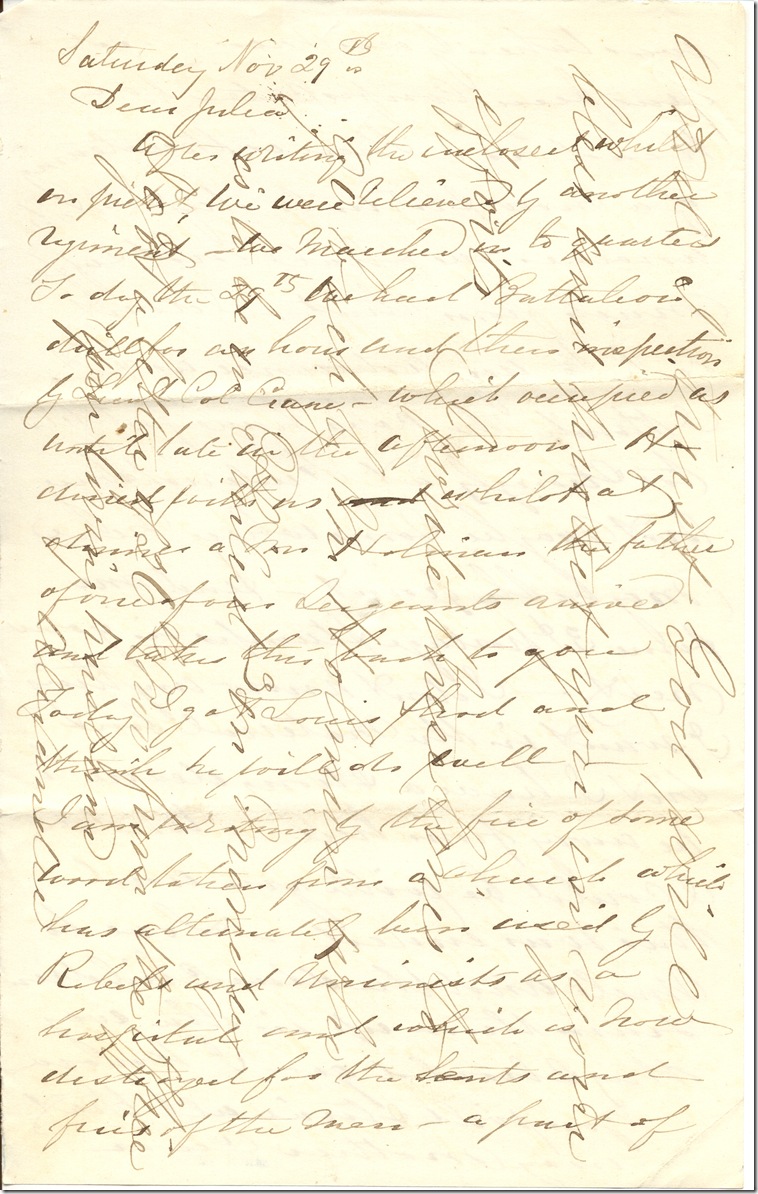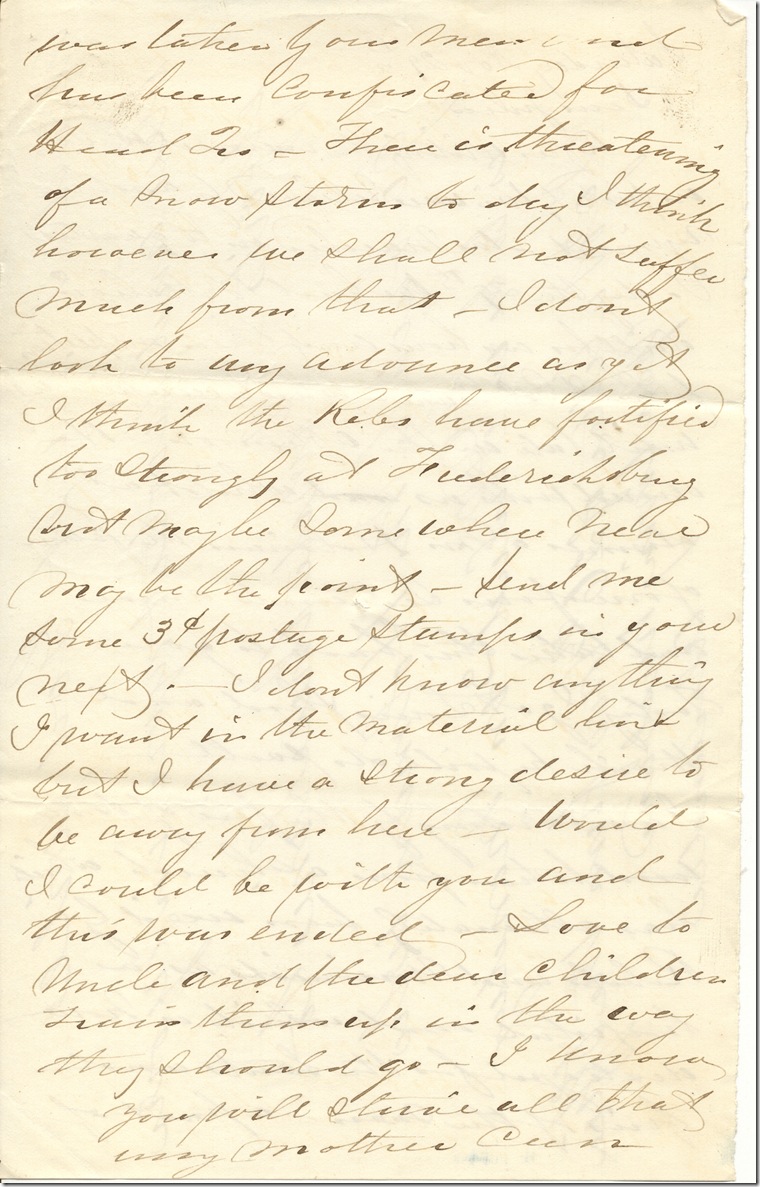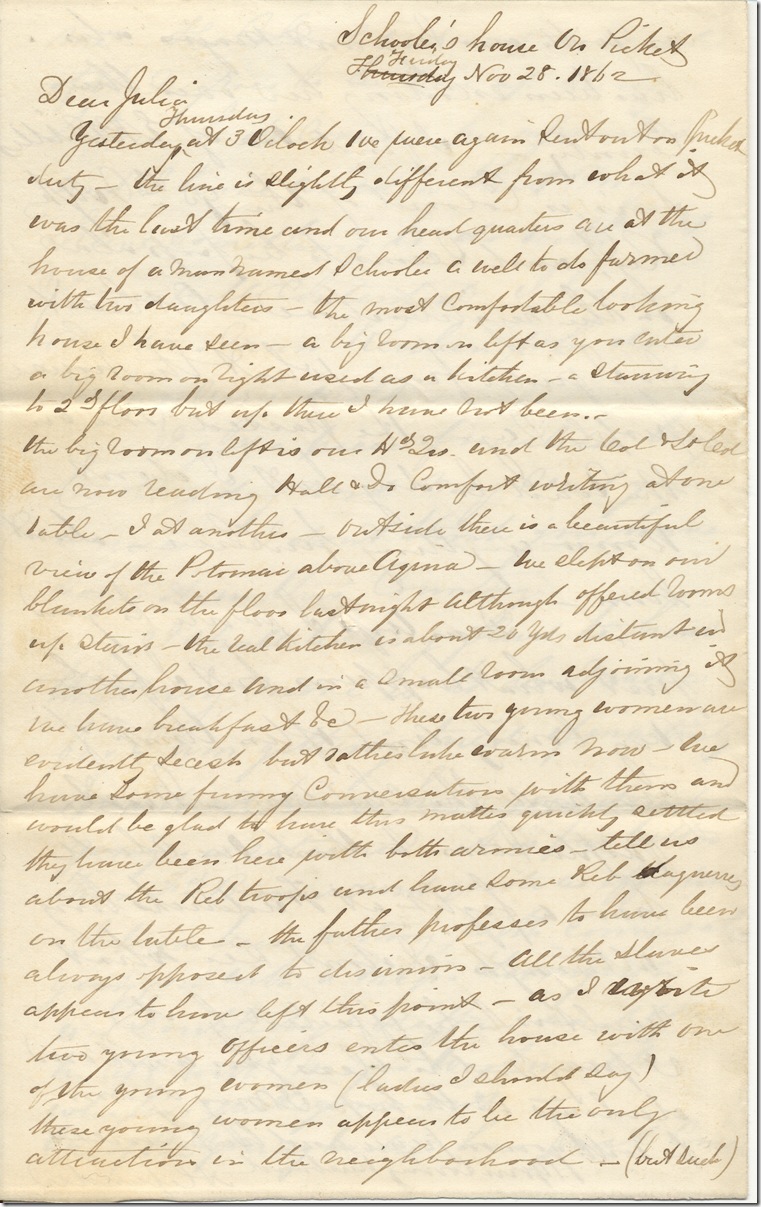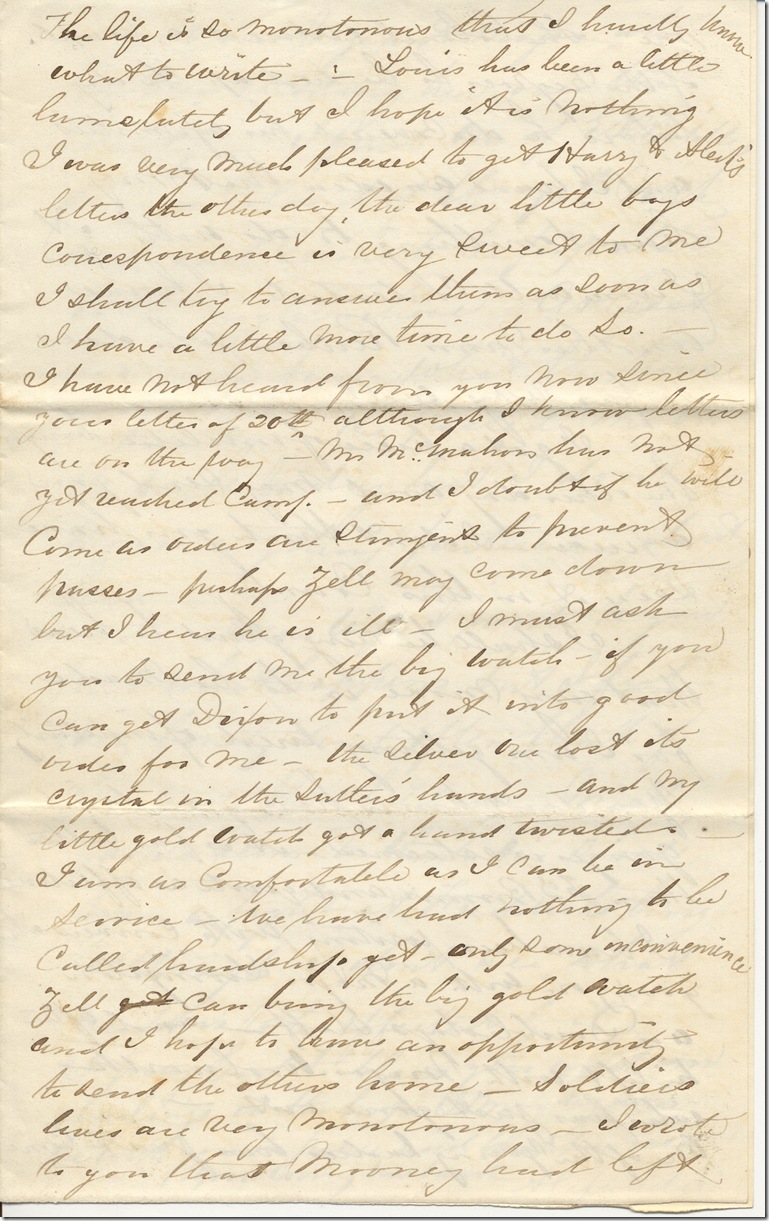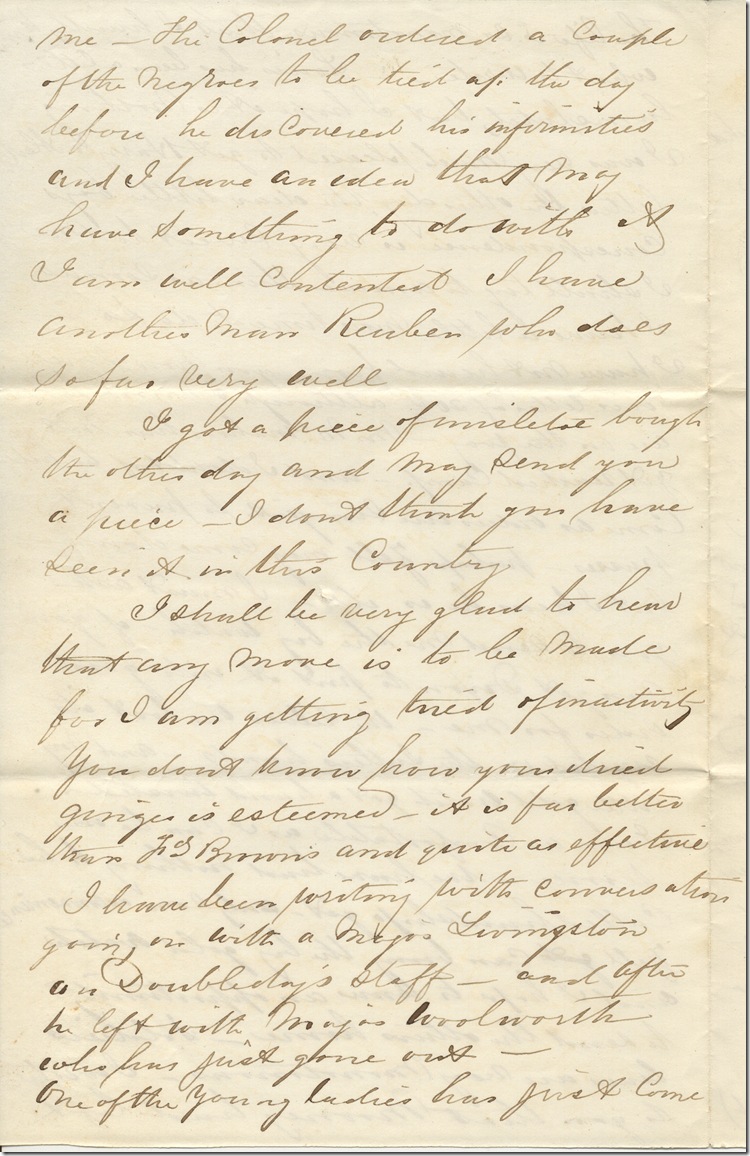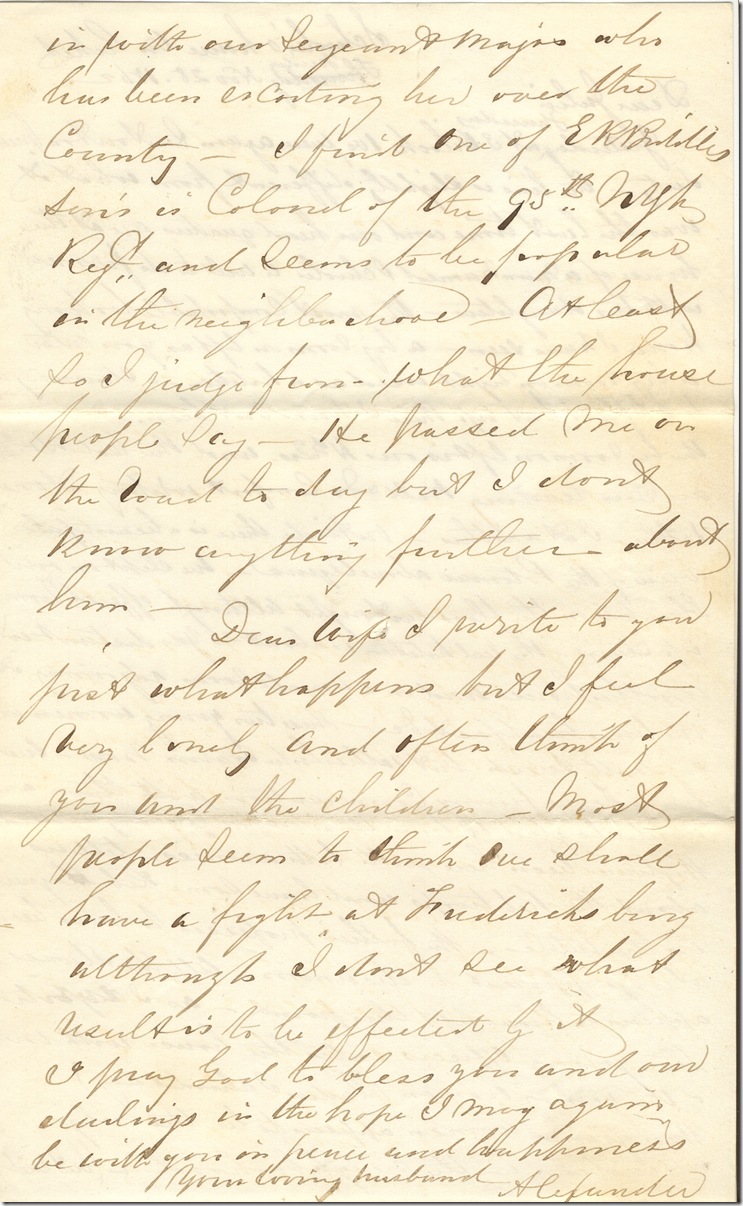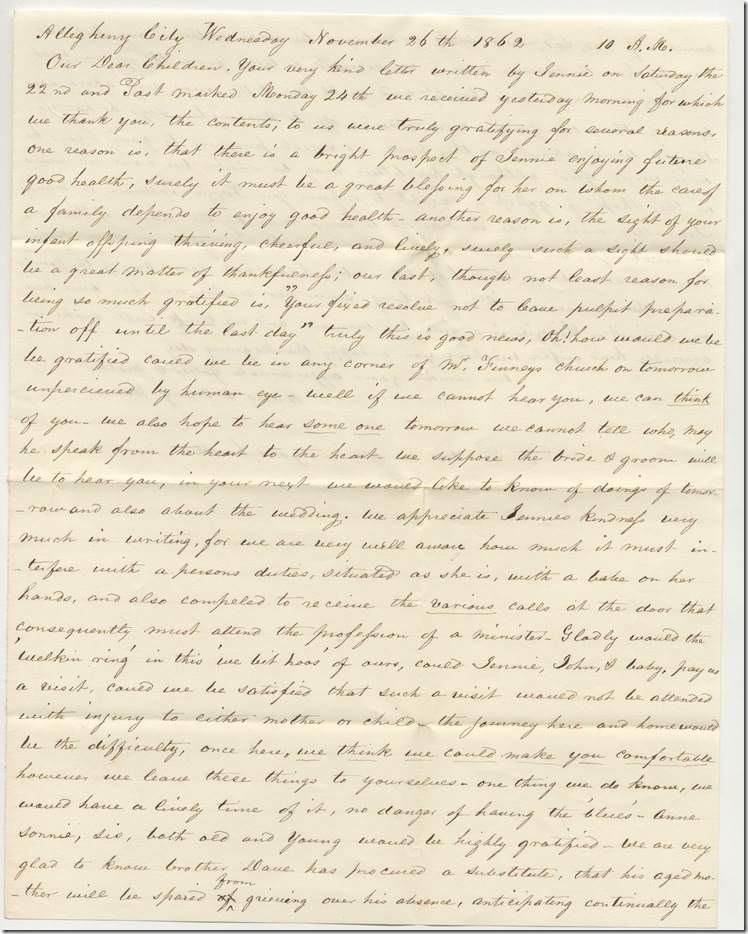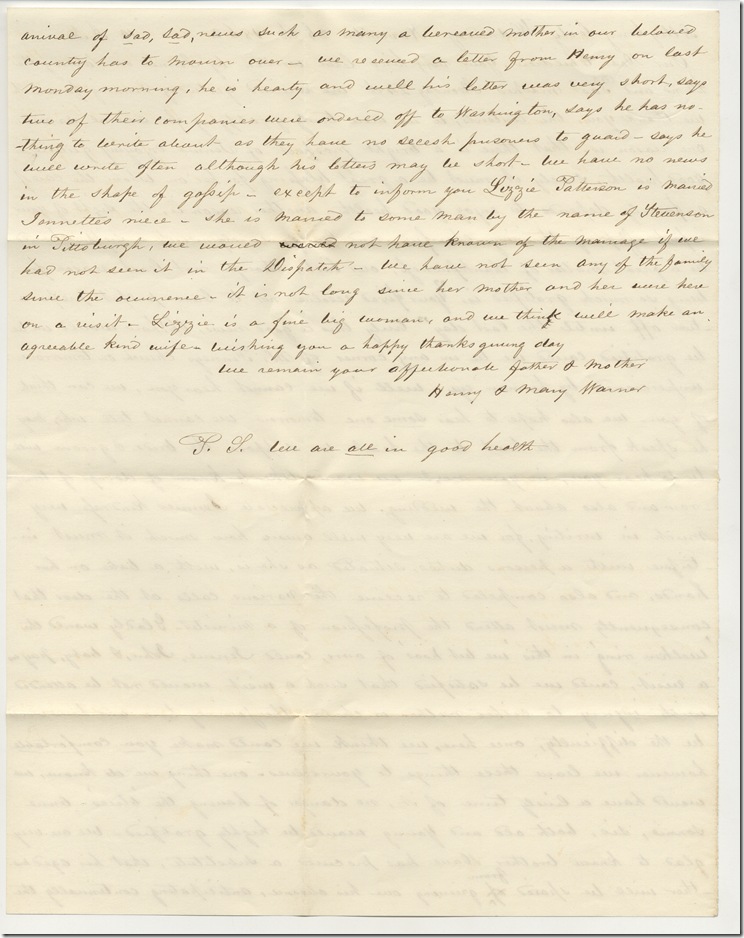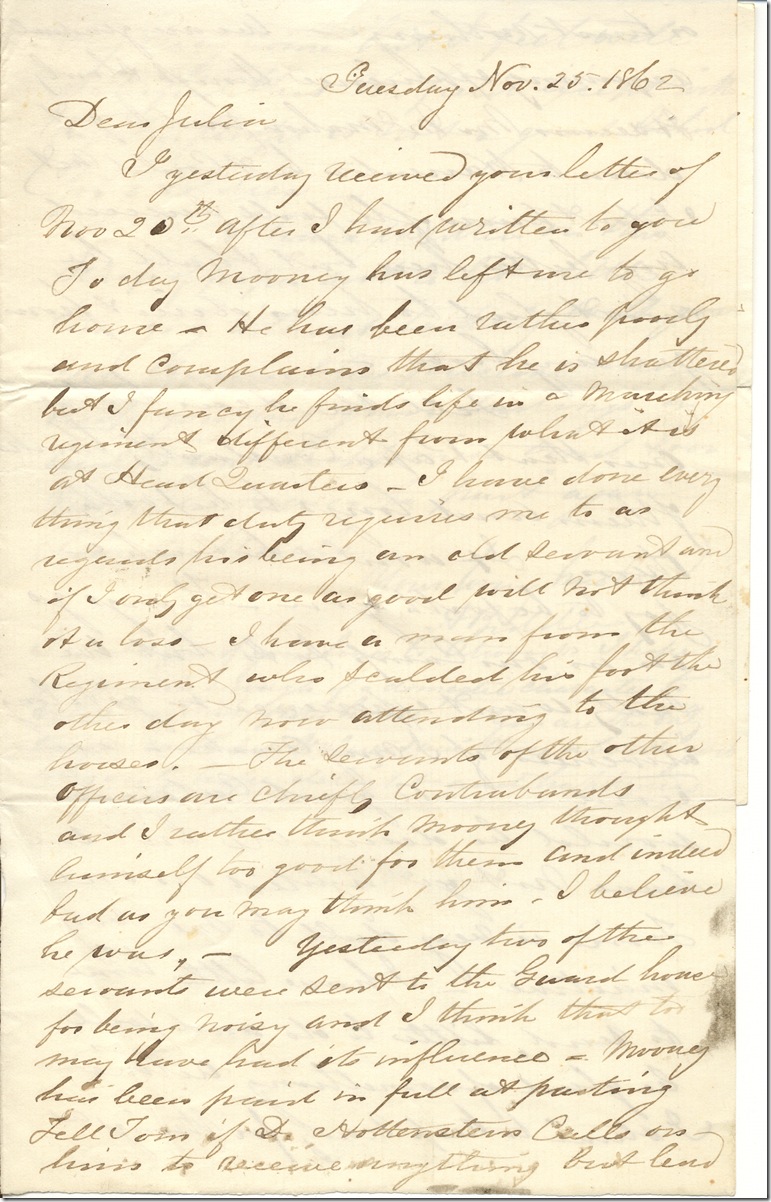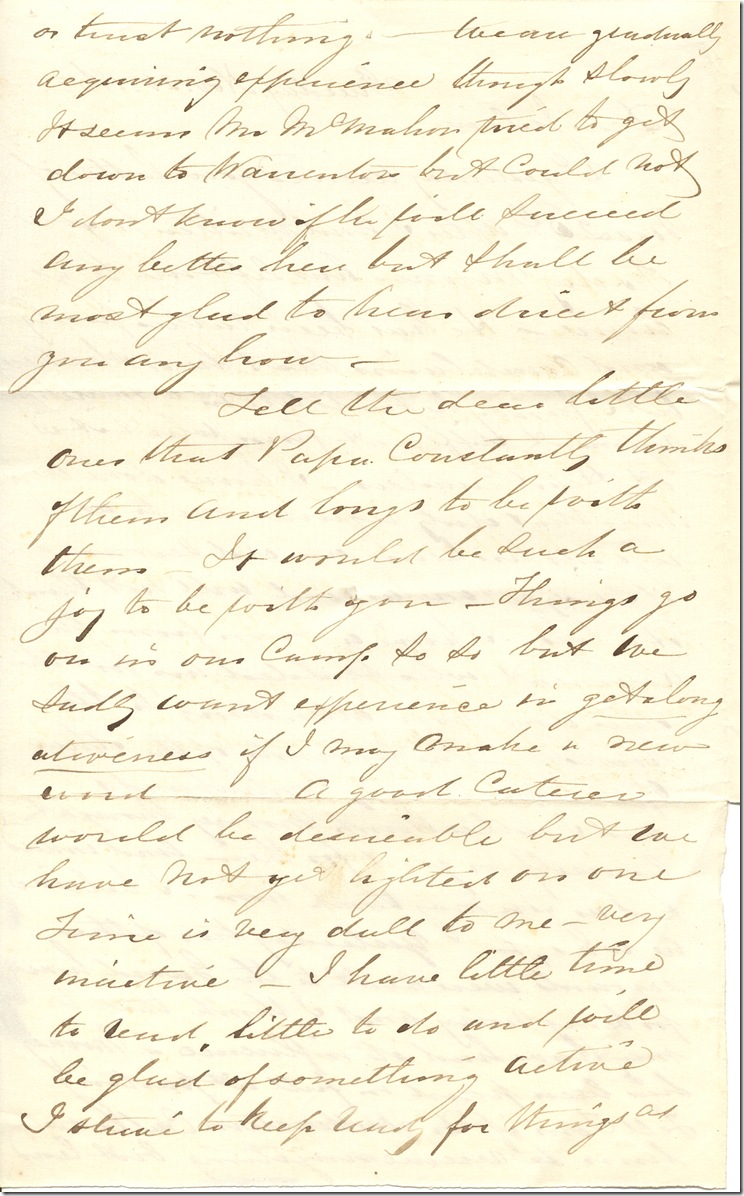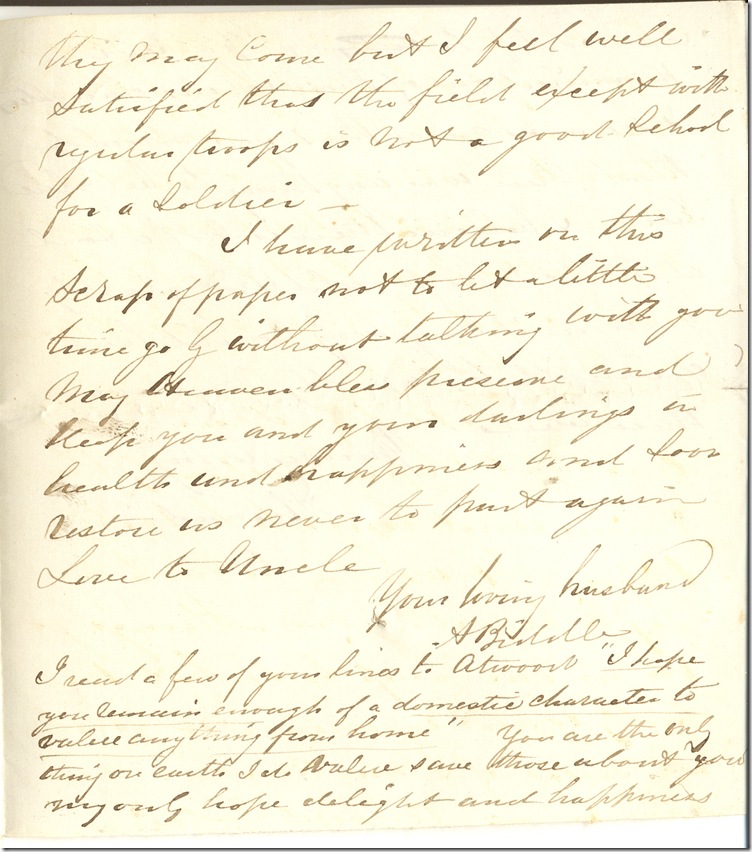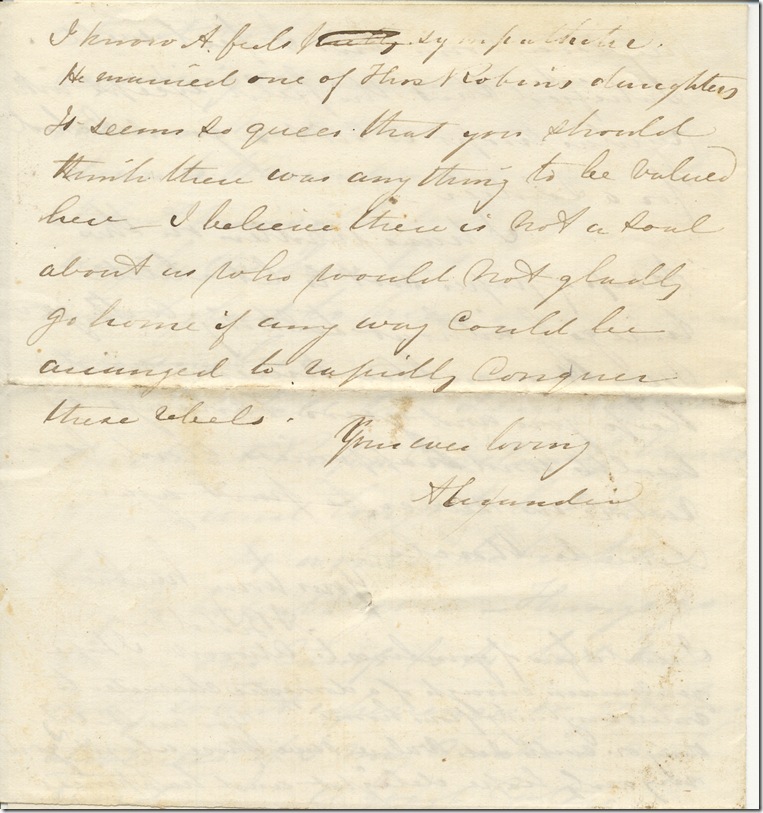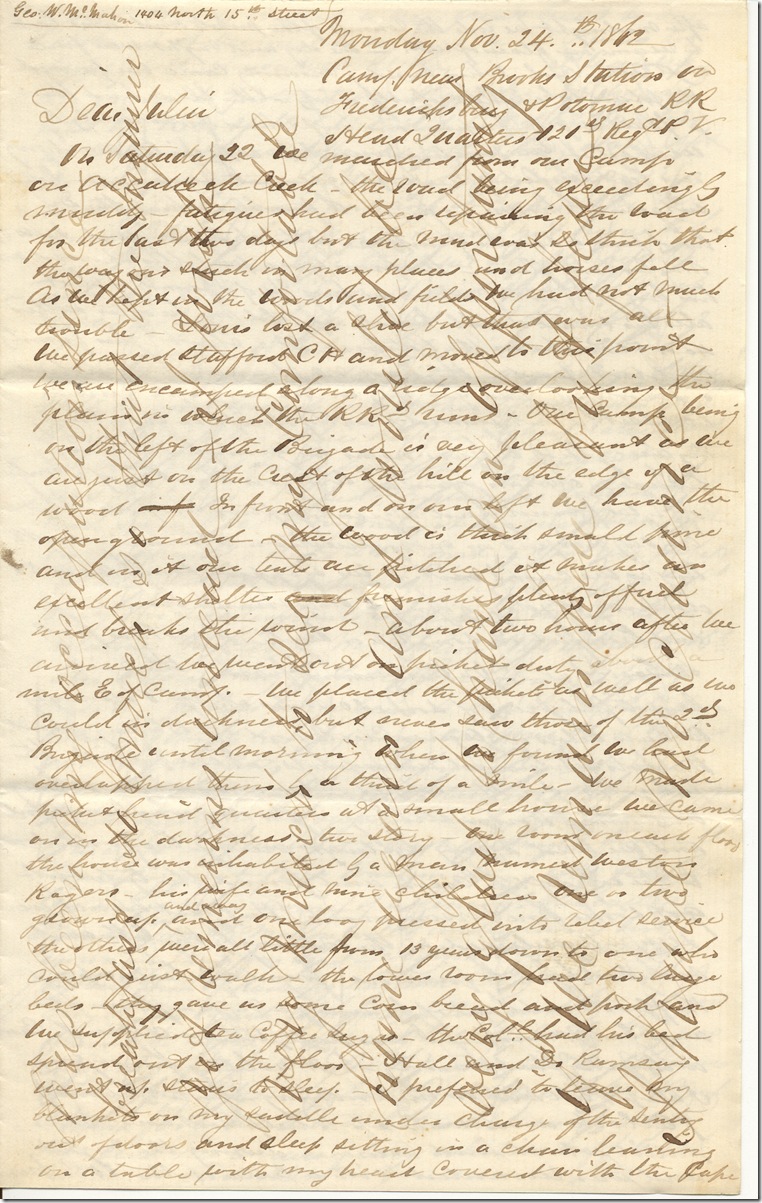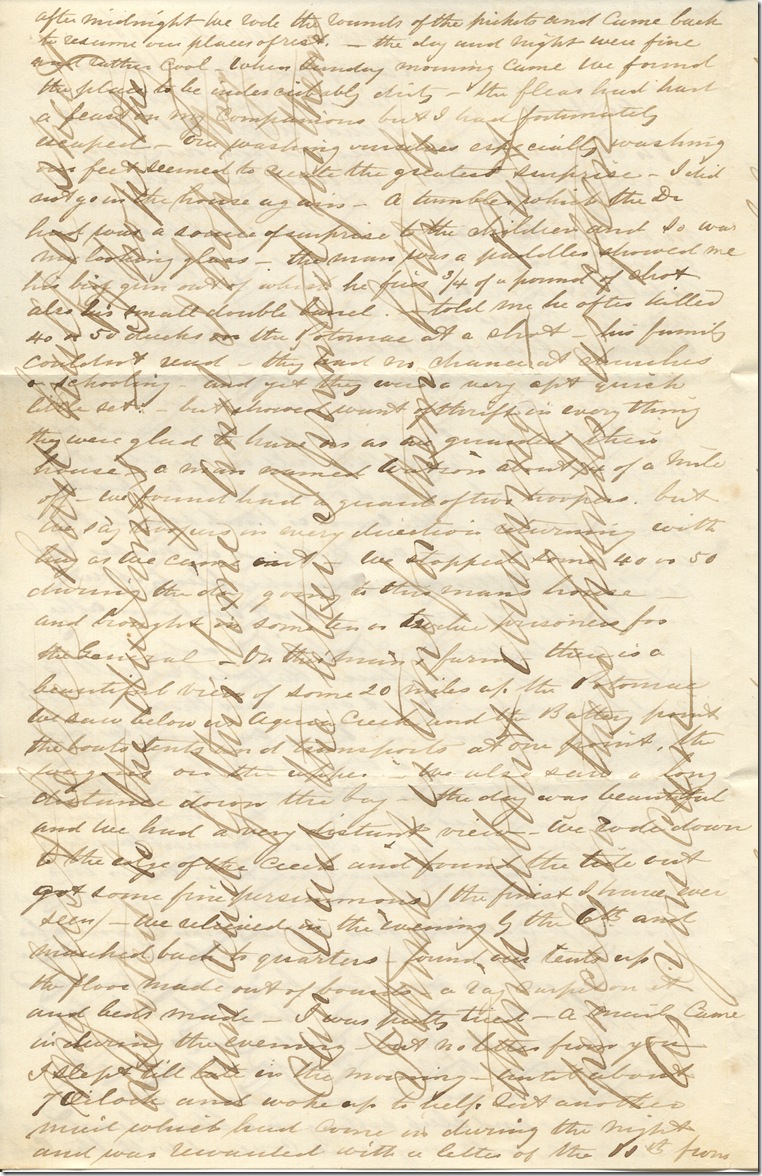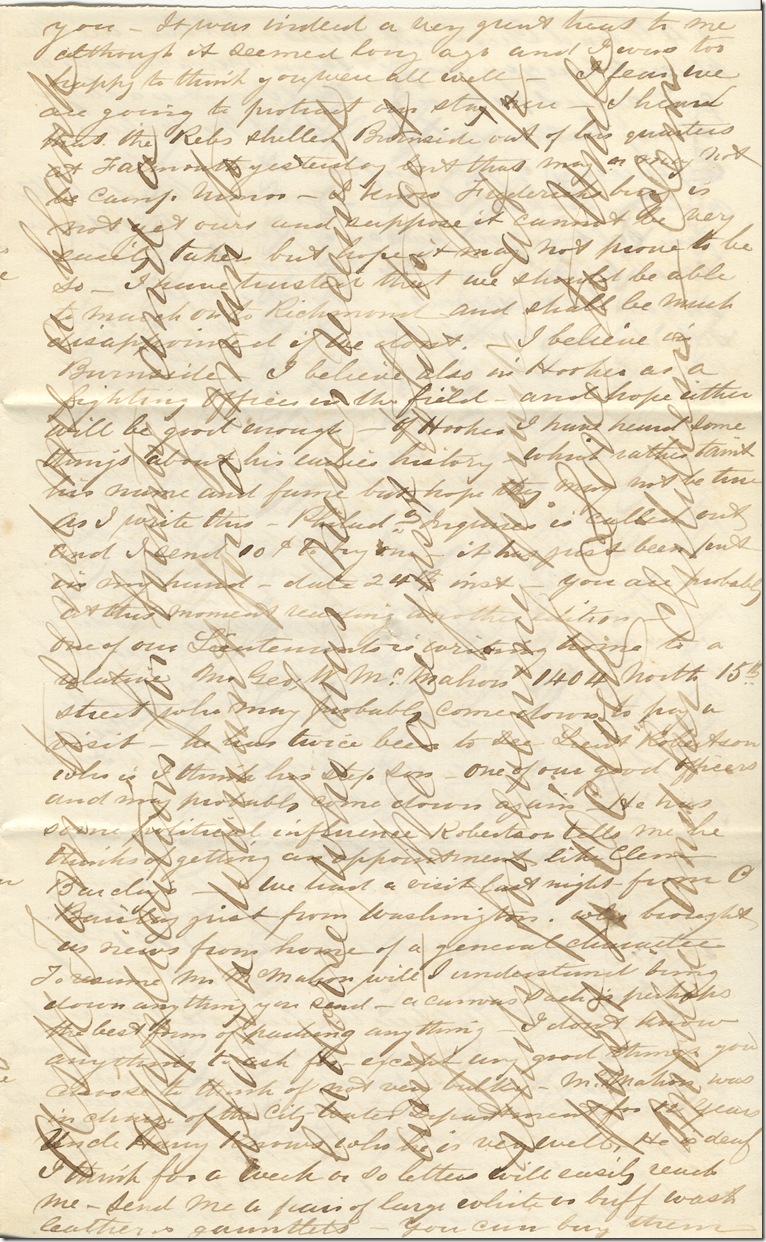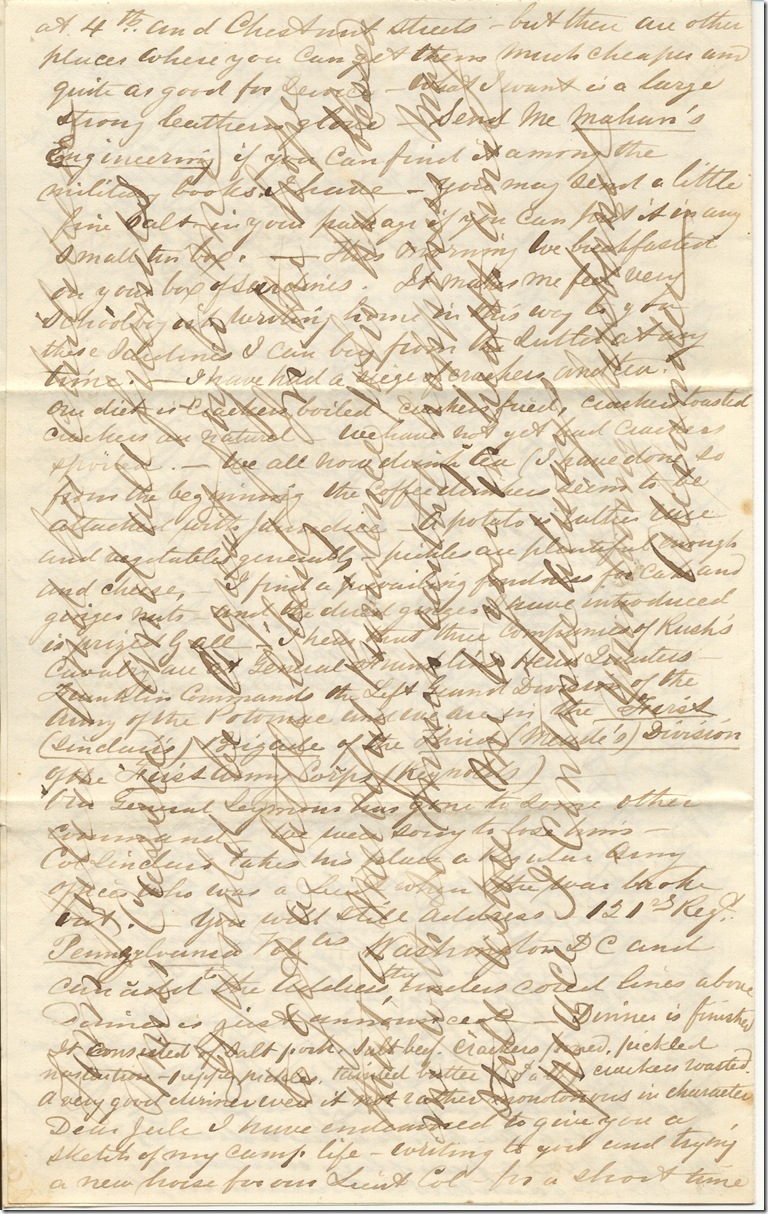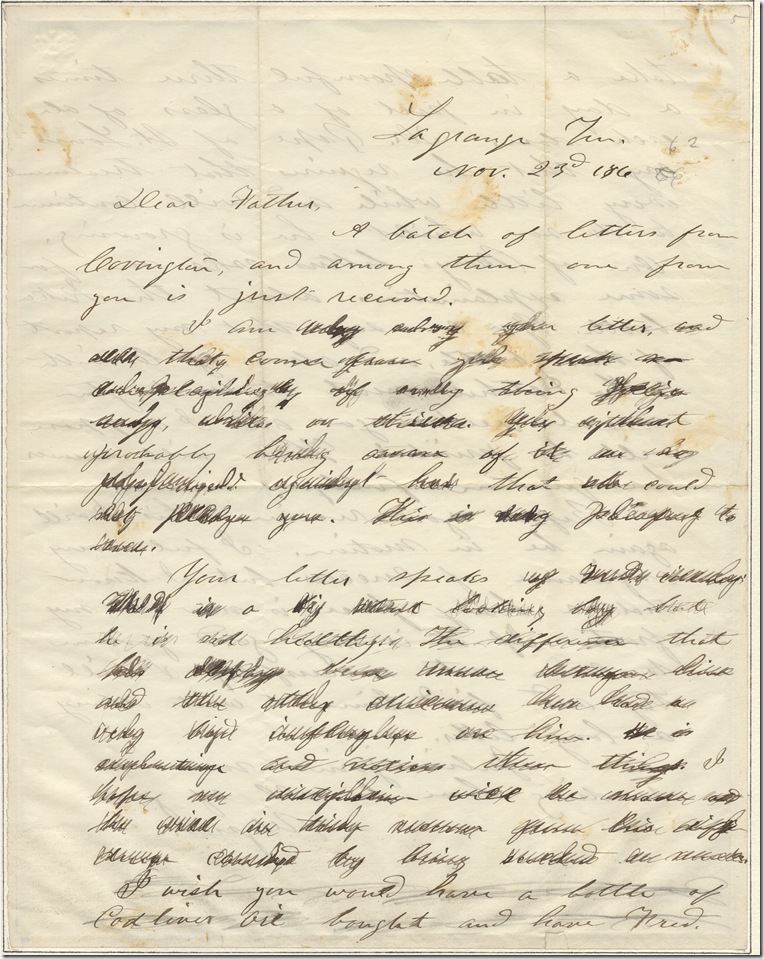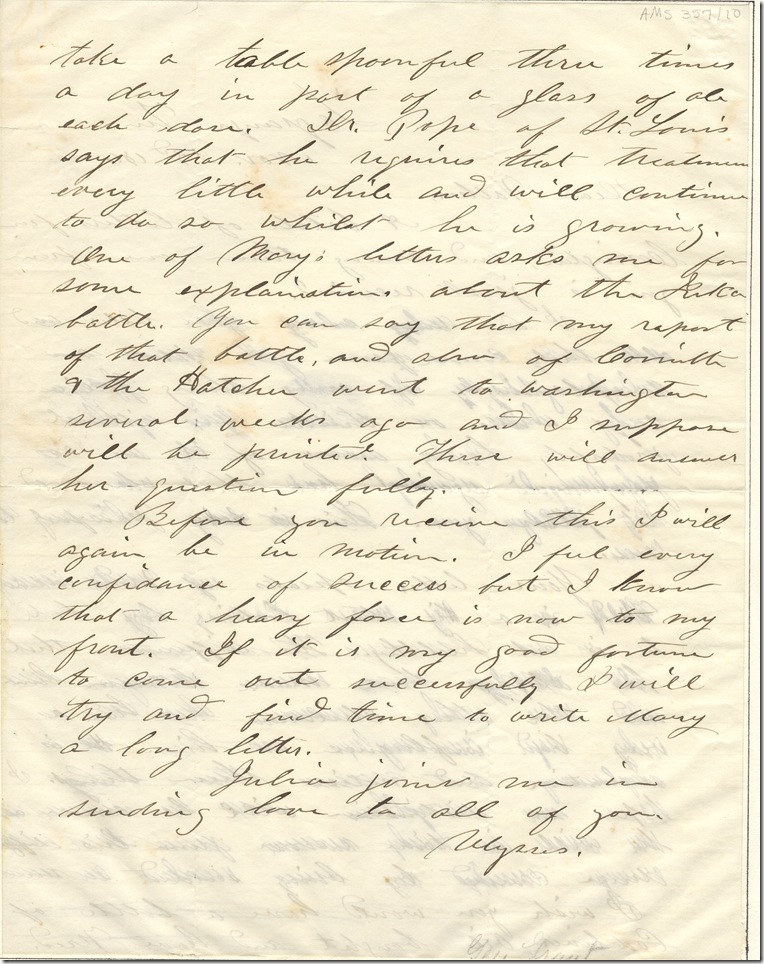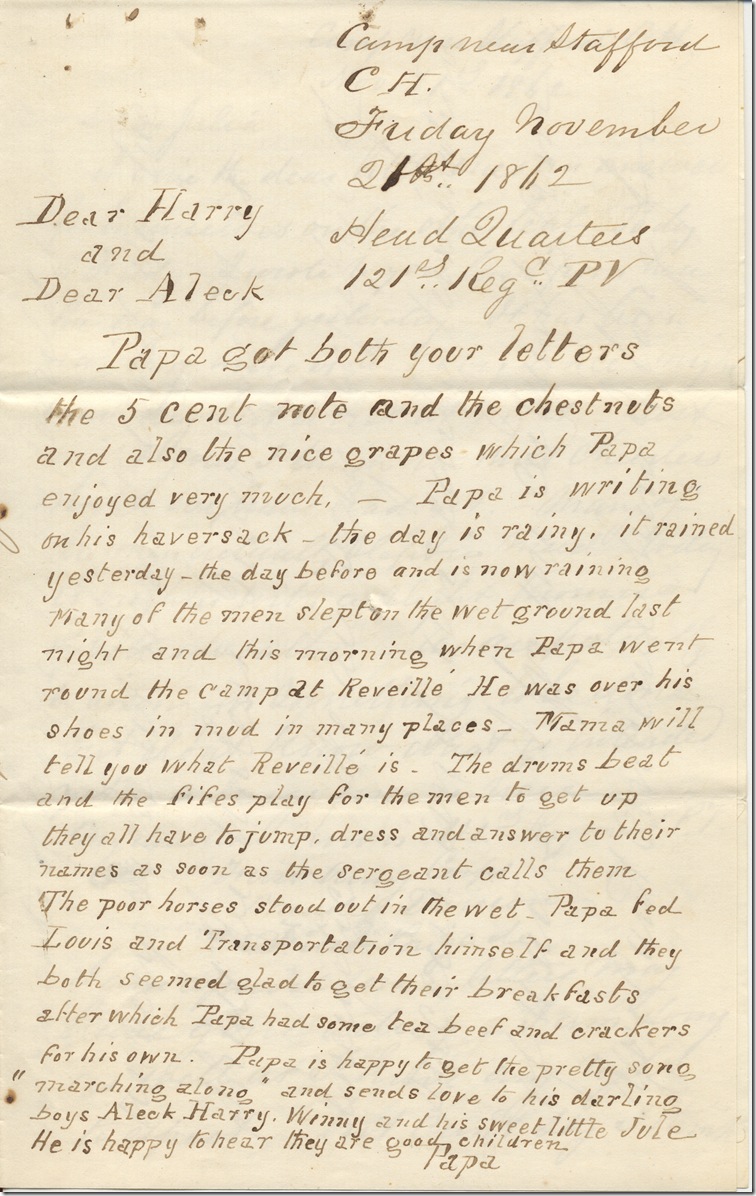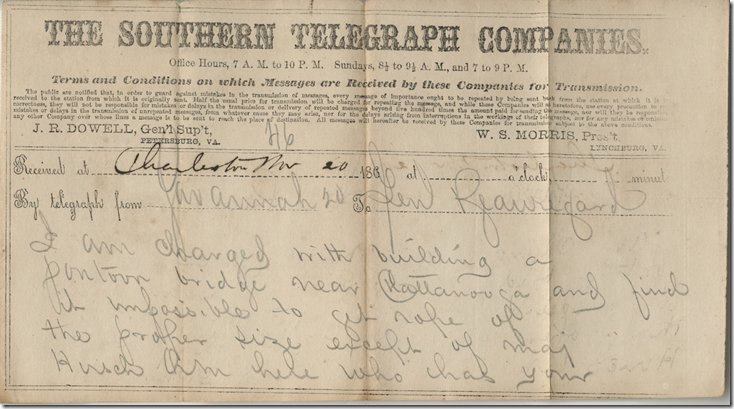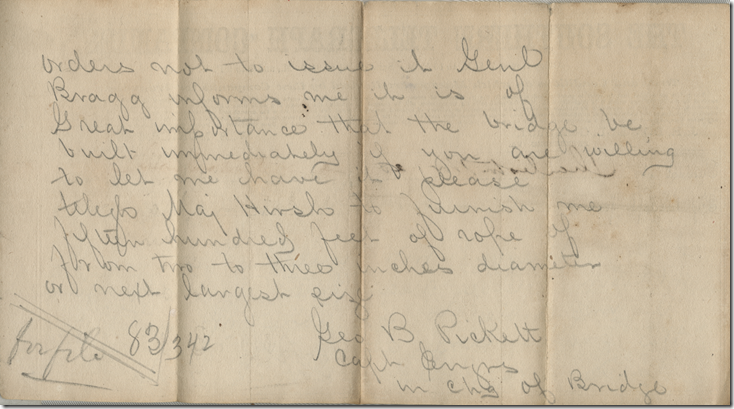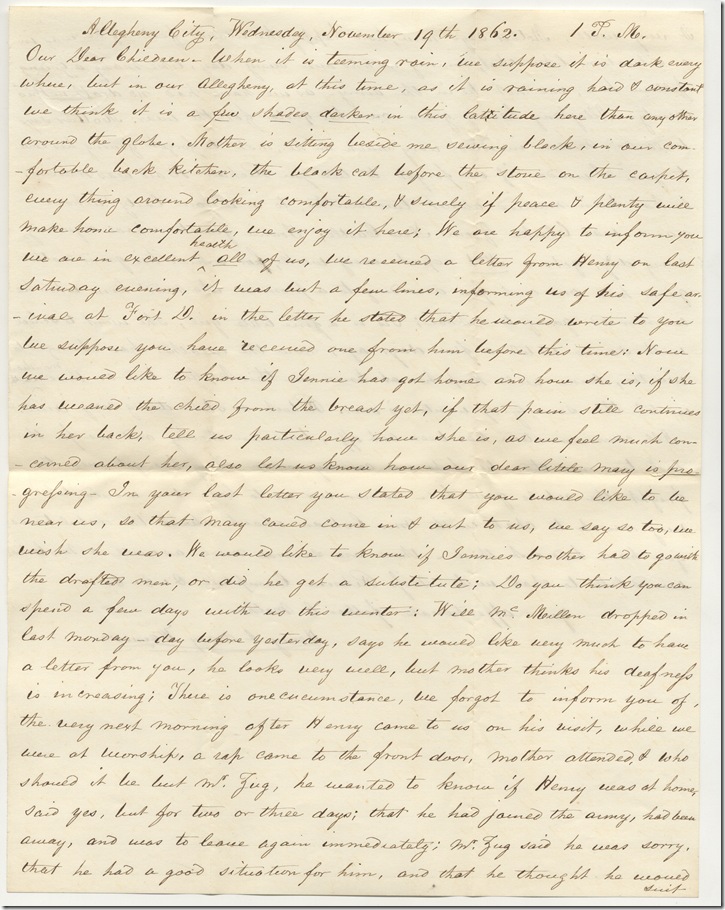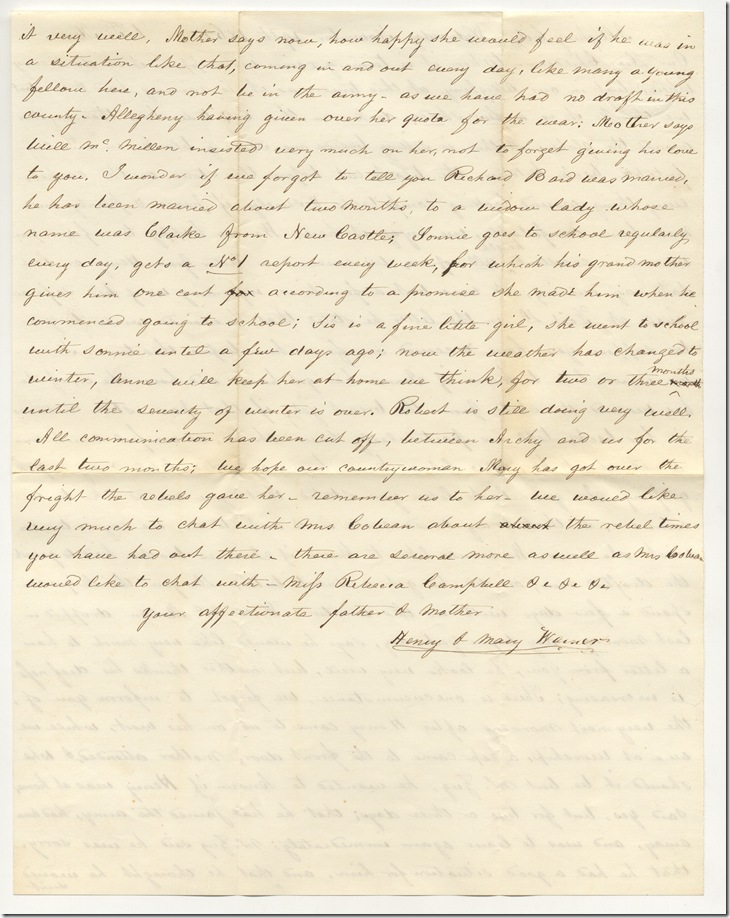Cyrus Field was the founder of the Atlantic Telegraph Company, which laid the first trans-Atlantic telegraph cable; a project which gave him close ties with British politicians and businessmen.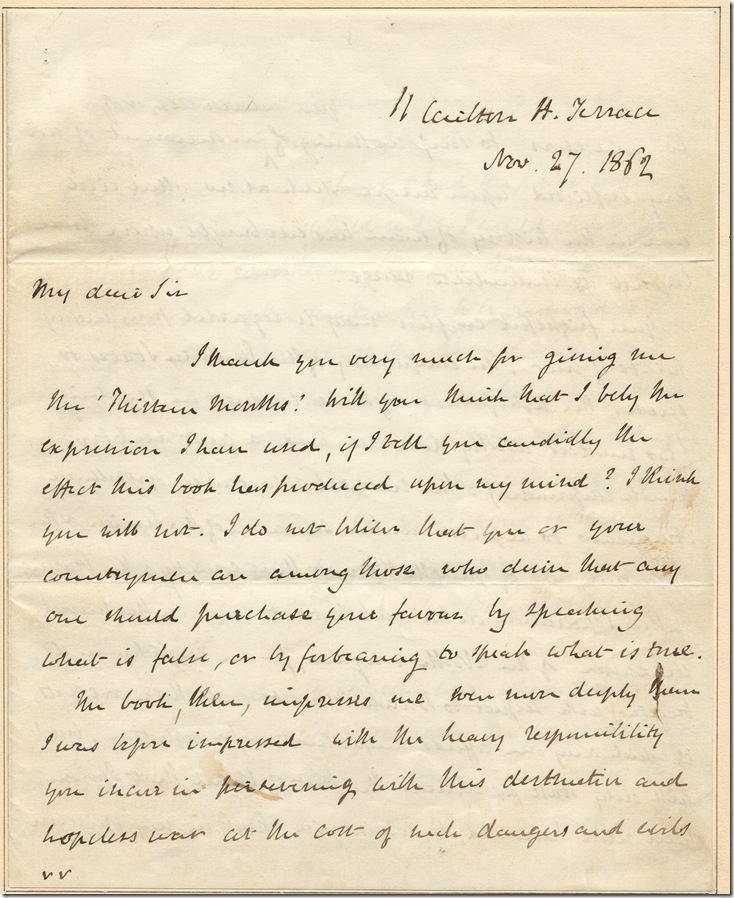
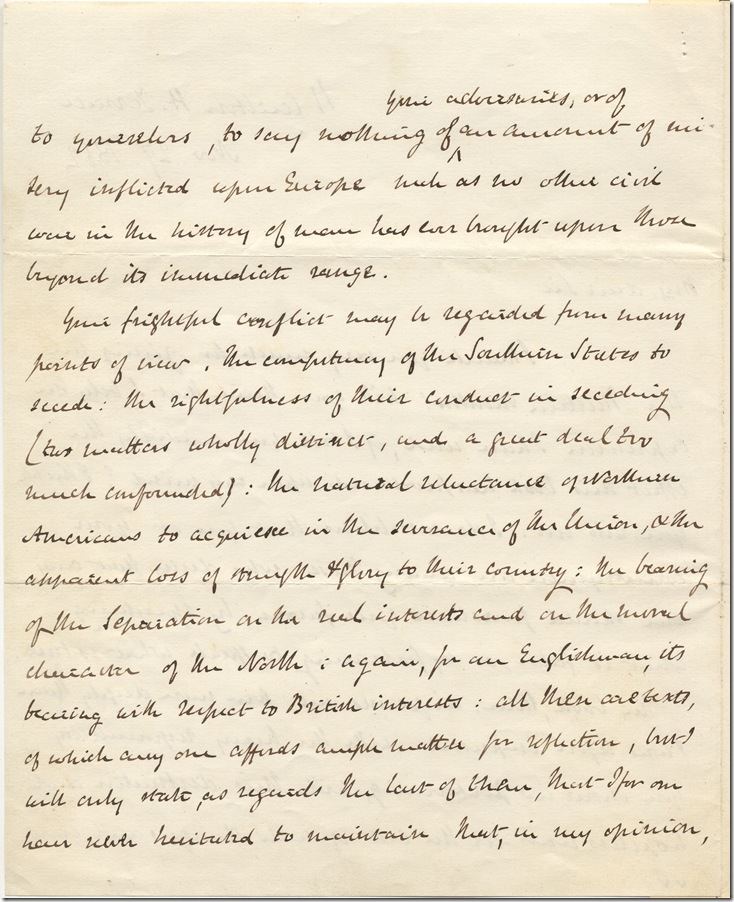
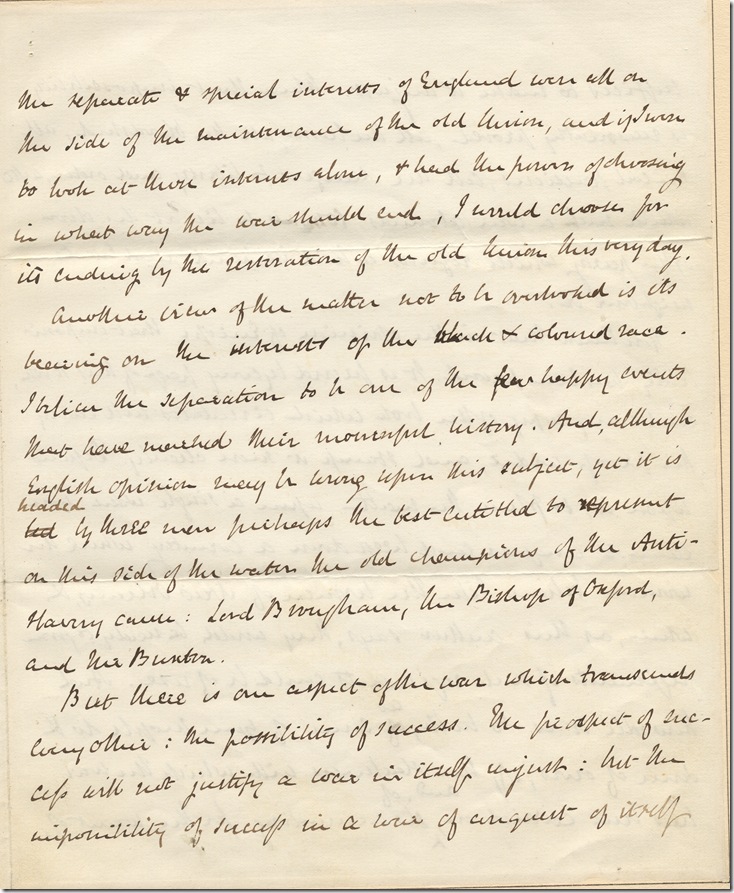
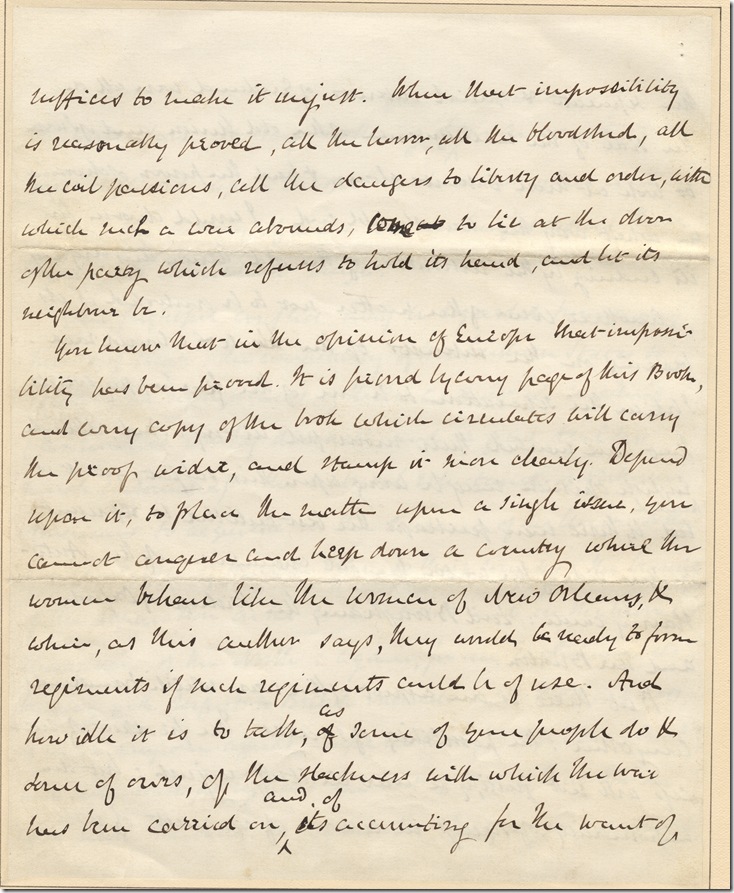
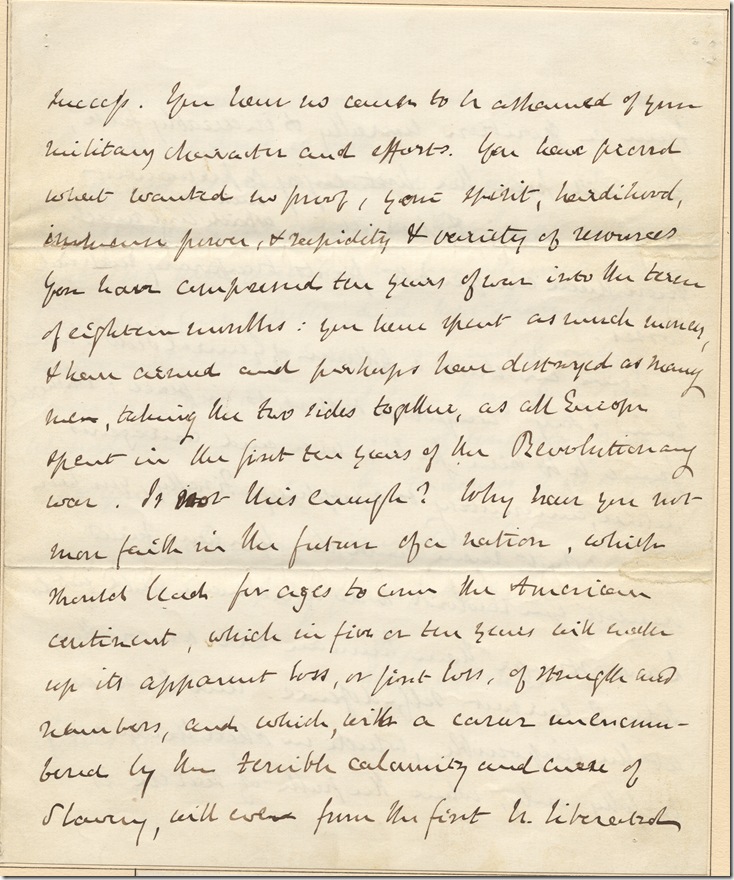
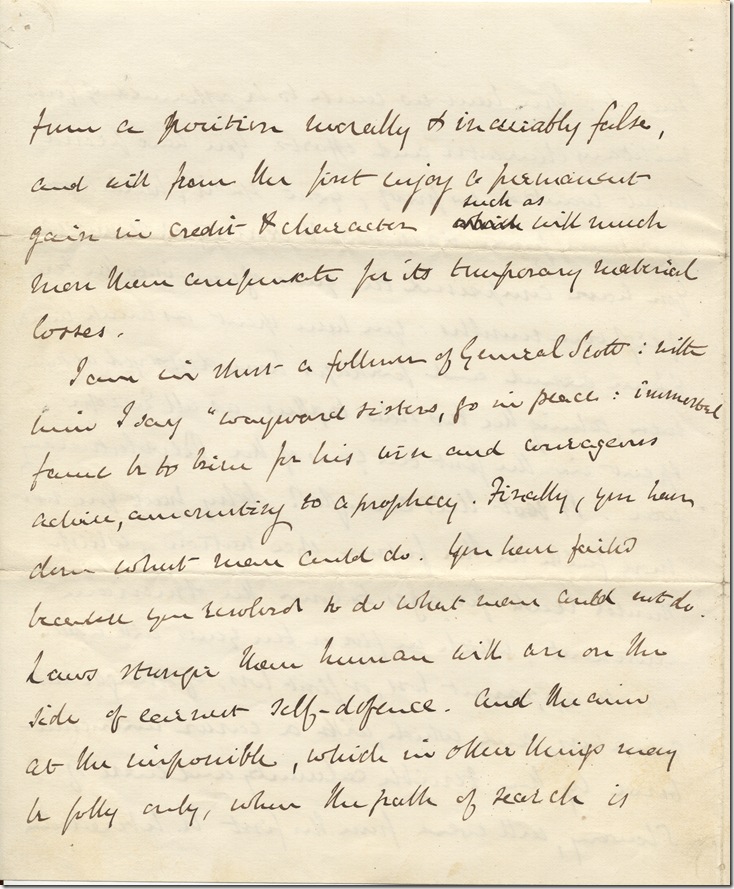
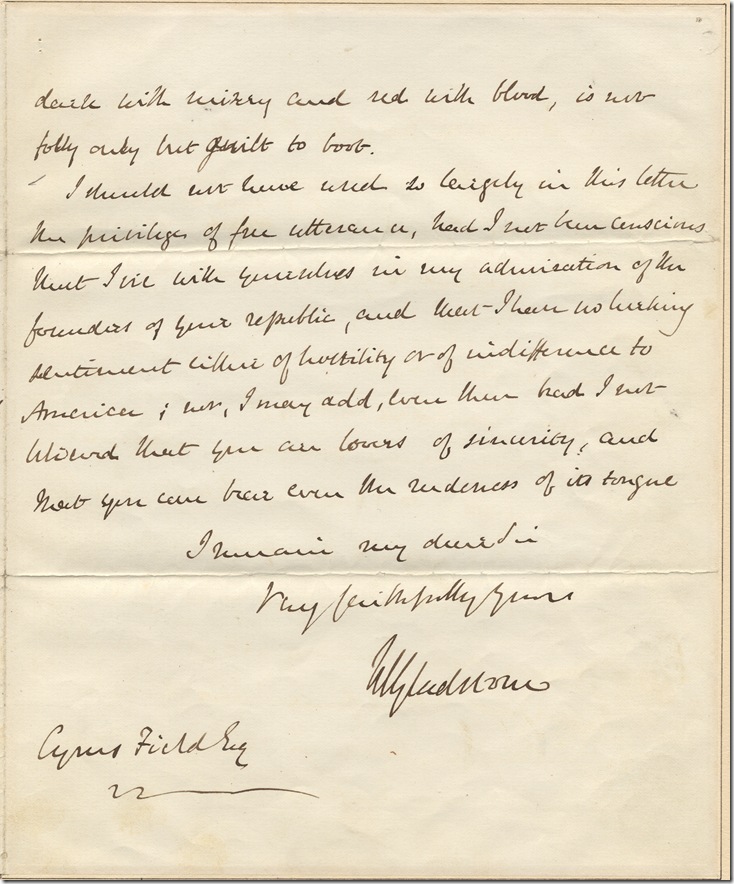
11 Wilton H. Terrace
Nov. 27. 1862
My dear Sir
I thank you very much for giving me the Thirteen Months. Will you think that I bely the expression I have used, if I tell you candidly the effect this book has produced upon my mind? I think you will not. I do not believe that you or your countrymen are among those who desire that any one should purchase your favour by speaking what is false, or by forbearing to speak what is true.
The book, then, impresses me even more deeply than I was before impressed with the heavy responsibility you incur in persevering with this destructive and hopeless war at the cost of much dangers and evils to yourselves, to say nothing of your adversaries, or of an account of misery inflicted upon Europe much as no other civil war in the history of men has brought upon men beyond its immediate range.
Your frightful conflict may be regarded from many points of view. The competency of the Southern States to secede: the rightfulness of their conduct in seceding (two matters wholly distinct, and a great deal too much confounded): the natural reluctance of Northern Americans to acquiesce in the severance of the Union, & the apparent loss of strength & glory to their country: the bearing of the Separation on the real interests and on the moral character of the North: again, for an Englishman, its bearing with respect to British interests: all these are texts, of which any one affords ample matter for reflection, but I will only note, as regards the last of them, that I for one have never hesitated to maintain that, in my opinion, the separate & special interests of England were all on the side of the maintenance of the old Union, and if I were to look at those interests alone, & had the power of choosing in what way the war should end, I would choose for its ending by the restoration of the old Union this very day.
Another view of the matter not to be overlooked is its bearing on the interests of the black & coloured race. I believe the separation to be one of the happy events that have reached this mournful history. And, although English opinion may be wrong upon this subject, yet it is headed by those men perhaps the best entitled to represent on this side of the water the old champions of the Anti-Slavery cause: Lord Brougham, the Bishop of Oxford, and Mr Burton.
But there is one aspect of the war which transcends every other: the possibility of success. The prospect of success will not justify a war in itself unjust: but the impossibility of success in a war of conquest of itself suffices to make it unjust. When that impossibility is reasonably proved, all the terror [horror?], all the bloodshed, all the evil passions, all the dangers to liberty and order, with which such a war abounds, come to lie at the door of the party which refuses to hold its hand, and let its neighbour be.
You know that in the opinion of Europe that impossibility has been proved. It is found by every page of this Book, and every copy of the book which circulates will carry the proof wider, and stamp it more clearly. Depend upon it, to place the matter upon a single issue, you cannot conquer and keep down a country when the women behave like the women of New Orleans, & which, as this author says, they would be ready to form regiments if such regiments could be of use. And how idle it is to talk, as some of your people do & some of ours, of the slackers with which the war has been carried on, and of its accounting for the want of success. You have no cause to be ashamed of your military character and efforts. You have proved what wanted no proof, your spirit, hardihood, [illeg.] power, & rapidity & veracity of resources. You have condensed the years of war into the term of eighteen months: you have spent as much money, & have armed and perhaps have destroyed as many men, taking the two sides together, as all Europe spent in the first ten years of the Revolutionary war. Is not this enough? Why have you not more faith in the future of a nation, which should lead for ages to come the American continent, which in five or ten years will even up its apparent loss, or first loss, of strength and numbers, and which, with a career unencumbered by the terrible calamity and curse of slavery, will even from the first be liberated from a position generally & invariably false, and will from the first enjoy & permanent gain in credit & character such as will much more than compensate for its temporary material losses.
I am in short a follower of General Scott: with him I say “wayward sisters, go in peace”: immortal fame to him for his will and courageous advice, amounting to a prophecy. Finally, you have done what man could do. You have failed because you failed to do what men could not do. Laws stronger than human will are on the side of easiest self-defence. And the aim at the impossible, which in other times very be folly only, when the path of search is dealt with misery and red with blood, is not folly only but guilt to boot.
I should not leave used so largely in this letter the privilege of free utterance, had I not been conscious that I am with yourselves in my admiration of the founders of your republic, and that I have no lurking sentiment either of hostility or of indifference to America & her, I may add, even then had I not believed that you are lovers of sincerity, and that you can bear even the rudeness of its tongue
I remain […]
Very faithfully yours
W E Gladstone
Citation: W. E. (William Ewart) Gladstone (1809-1898), autograph letter signed to Cyrus W. Field. London,27 November 1862.
